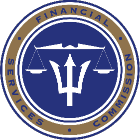

Corporate Governance: Independent Directors Within the Co-operative Model
The Financial Services Commission through its recent Corporate Governance Guideline (‘Guideline’) introduced the requirement for credit unions which fall under its regulatory and supervisory remit to have independent directors. Specifically, at least one-third (1/3) of the Board must be independent directors. The Commission further outlined its expectation that this is a minimum requirement and that the actual number and ratio of independent directors should align with each credit union’s size, complexity and risk profile.
Are Independent Directors Compatible With the Co-operative Model?
Some stakeholders have posited that this mandate is inconsistent with cooperative principles and challenging to comply with, as credit unions are cooperative organisations, governed by elected volunteers drawn from membership.
The Commission reaffirms that the recently introduced requirement is fully consistent with cooperative principles and consistent with the Co-operative Societies Act CAP 378A (Act). The Act provides a framework under which Boards of credit unions are allowed to reach outside the core of elected directors to buttress and supplement the skillset attained through the elections process. Section 76(3) of the Act requires only the president and vice-president of a credit union to be directors of the credit union. Further, the Act allows members through registered by-laws to permit persons who are not directors to fill those two posts.
To further support the tenet of independence at the directorship level, the Act mandates a rotational requirement and imposes term limits and cooling off periods for elected directors. The Corporate Governance guideline builds on this requirement to mitigate the likelihood of actual or potential conflict of interest by ensuring that at all times the credit union has the benefit of directors who are independent of previous administrations.
Additionally, similar requirements have been successfully implemented by regulatory authorities in other jurisdictions resulting in enhanced corporate governance practices. There are also instances where credit unions have self-imposed this requirement to ensure that as they evolve and mature, they can maintain governance practices that are consistent with their size, complexity and risk profile and the relevant skill sets are always available to benefit the credit union and its members. Credit unions are financial institutions of increasing systemic importance and must be governed accordingly. Regulators globally recognise credit unions as integral to their domestic financial space, where at least one country requires all credit unions that reach a predetermined threshold to convert their registration to that of a bank.
Stakeholders are reminded of the Commission’s remit under Section 4 (c) of the Financial Services Commission Act 2010 -21 to; establish standards for institutional strengthening, for the control and management of risk in the financial services sector and for the protection of customers of financial institutions as well as creditors and the public. The development of this guideline is in furtherance of this mandate.
What is an Independent Director?
It is important to note the Commission defines an independent director as one who has no direct or indirect material relationship with the financial institution other than membership on the Board, and who:
a) is not, and has not been in the past five (5) years, employed by the financial institution or its subsidiaries and affiliated companies;
b) does not have, and has not had in the past five (5) years, a business relationship with the financial institution or its subsidiaries and affiliated companies, and is not a director, officer or senior employee of a person that has or had such a relationship;
c) is not affiliated with any non-profit organisation that receives significant funding from the financial institution or its subsidiaries and affiliated companies;
d) does not receive and has not received in the past five (5) years, any additional remuneration from the financial institution, its subsidiaries and affiliated companies other than his or her director's fee and such director’s fee does not constitute a significant portion of his or her annual income;
e) does not participate in any pension plan offered by the financial institution or any of its subsidiaries;
f) is not, nor has been at any time during the past five (5) years, affiliated with or employed by a present or former auditor of the financial institution or any of its subsidiaries and affiliated companies;
g) does not hold a material interest in the financial institution or its subsidiaries and affiliated companies (either directly or as a partner, shareholder, director, officer or senior employee of a person that holds such an interest);
h) is not a member of the immediate family (and is not the executor, administrator or personal representative of any such person who is deceased or legally incompetent) of any individual who would not meet any of the tests set out in (a) to (g) (where he or she is a director of the financial institution); and
i) has not served on the Board or any elected committee for more than 10 (ten) years previous to this Guideline.
The Commission’s criteria for independent directors can be met by credit unions and will allow them to broaden the breadth and depth of talent available to serve and ensure that suitable qualified, fit and proper persons have oversight of regulated entities.
The members of credit unions that are unable to attract independent directors to satisfy the obligation for independent directors should be concerned about their business model and the steps necessary to best protect their interests.
What are the Benefits of Having Independent Directors?
As the Barbadian credit union sector matures and increases in systemic importance, it is critical to ensure that its risk management practices and risk management frameworks are appropriately structured. Corporate governance is a key determinant of an institution’s ability to manage risk, protect shareholders and generate returns for shareholders in a safe and sound environment. No institution can thrive and be successful if its governance practices are poor, The “tone at the top” is important. Access to independent directors allows credit unions to enhance their risk management and governance standards.
Good governance is a central part of ensuring that a credit union is effectively working towards achieving its objectives and meeting its obligations under the law. Board oversight involves monitoring the credit union’s business, including its administrative policies, financial performance, management’s performance, corporate and risk management policies, and compliance with legal obligations and the credit union’s own policies. Independent directors bring balance to boards and enhance impartiality, commitment and focus, allow access to expertise to boost performance and contribute to the reduction of conflict. Appropriately skilled independent directors bring focus, clear perspective, and the ability to lead objective board discussions. If necessary, these directors can steer the credit union towards better decisions and consequently, results.
The local credit union sector is characterised by a high level of heterogeneity thus while some credit unions are still at a nascent stage and heavily reliant on volunteers, offering only basic products and services, on the developmental spectrum, the Barbadian credit union sector can be considered to be on the threshold of the mature category. A mature credit union sector is characterised inter alia by;
- Large asset size,
- Increased prudential regulation,
- Loose common bond,
- Professionalisation of senior management Adoption of electronic technologies, and
- Diversified product portfolios.
The main element which is absent is deposit insurance coverage which is anticipated in the short-term.
Corollary to this status is the necessity for credit unions to have access to a diverse set of skills at the board level to oversee the conduct of the sector’s business within an appropriate risk management framework. The requirement for independent directors broadens the opportunity for new talent to participate in the governance system thus enhancing the future of the sector.
How do Credit Unions Meet Their Obligation to Elect Independent Directors?
It is important to note that independent directors will be elected to office by members and not selected. Regardless of the number of directors provided for in each credit union’s by-laws, at least one-third of those persons must be elected independent directors. Credit unions will be required to implement systems to actively monitor the composition of their boards. Where independent directors must be elected to satisfy the guideline, members should ensure that a suitable slate of qualified persons who are members of the credit union are nominated, vetted and presented for election. Persons who do not meet the criteria of independent directors cannot be legitimately elected where their election would result in the credit union’s non-complnance with the guideline.



